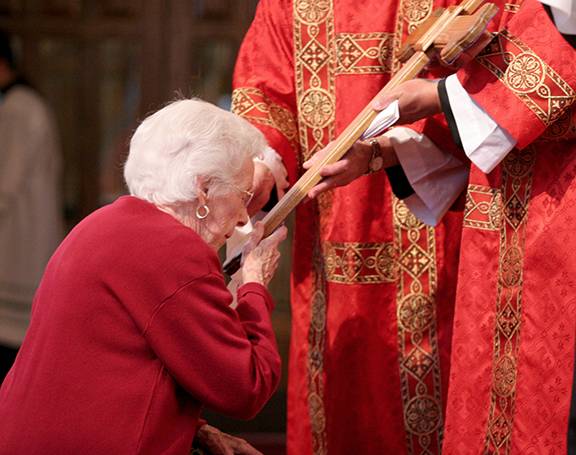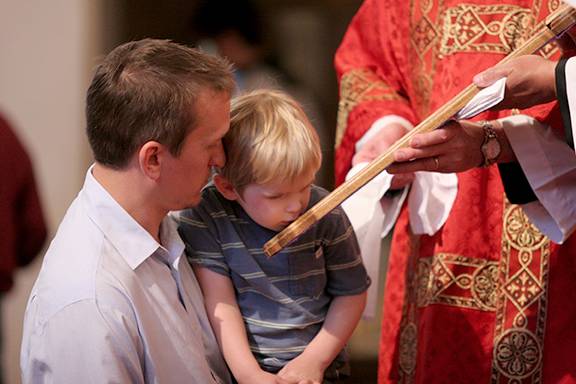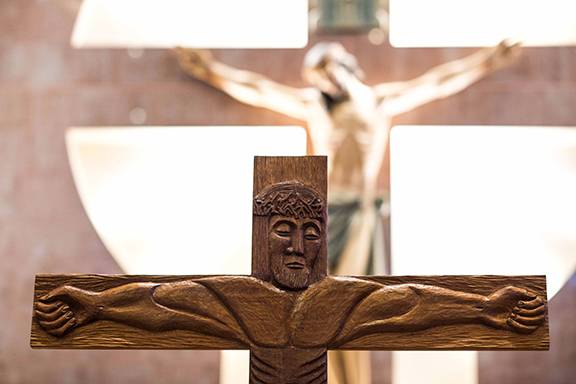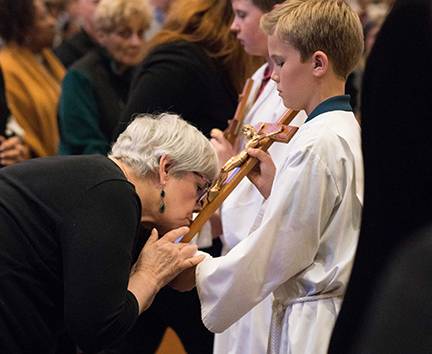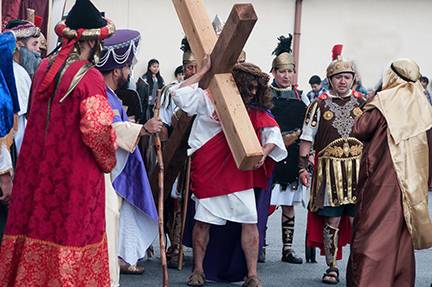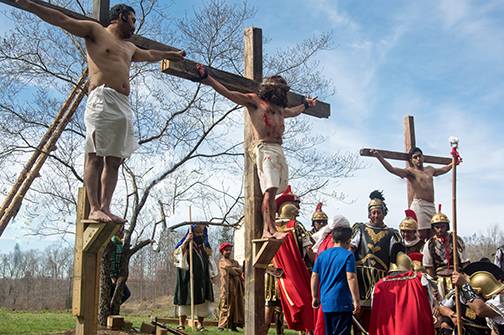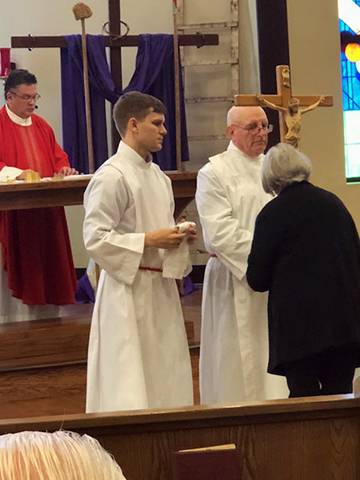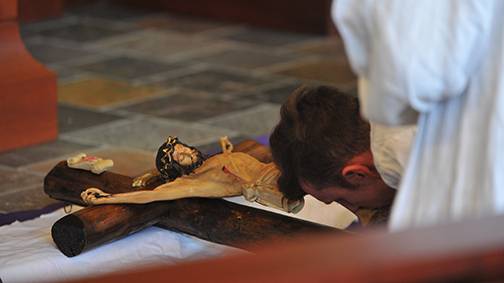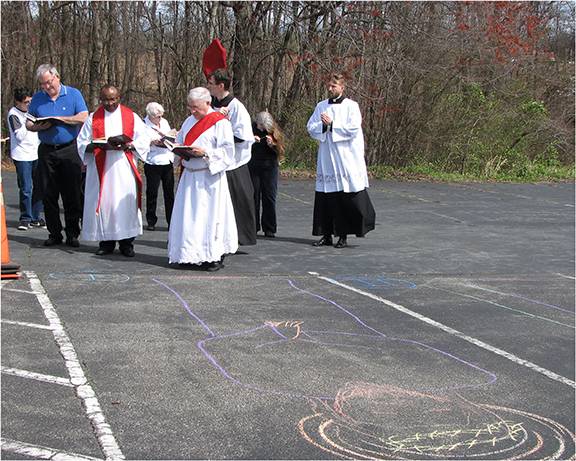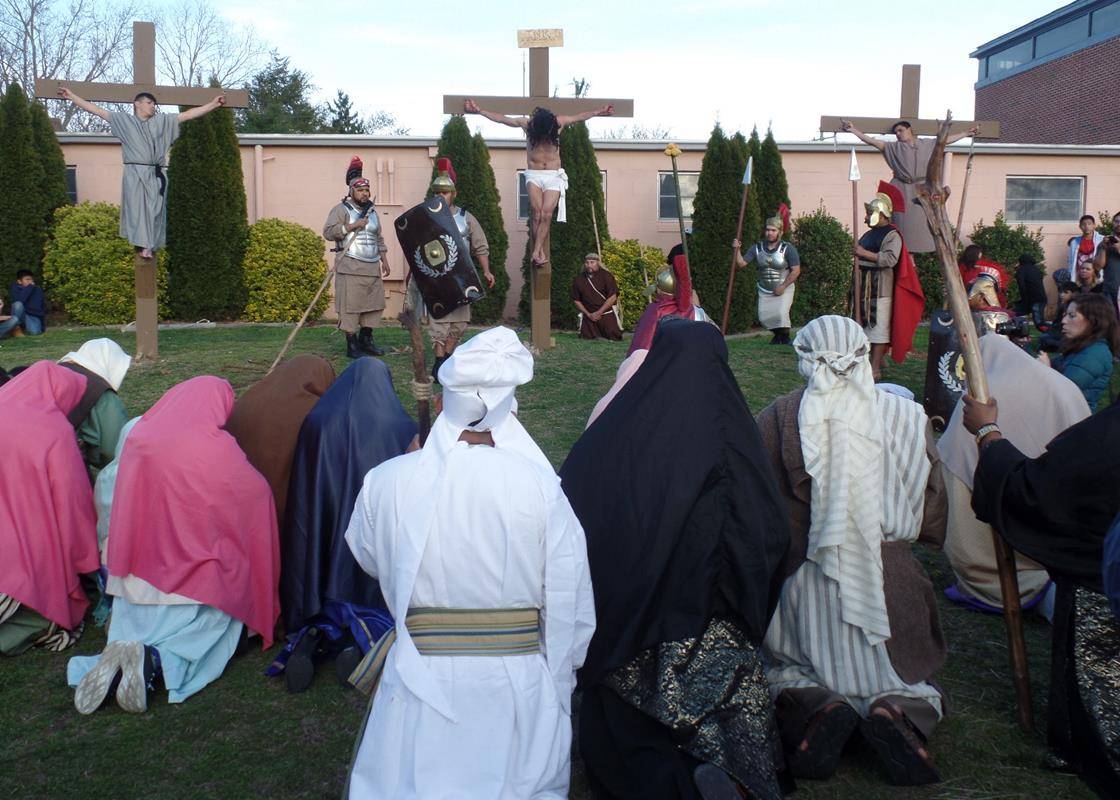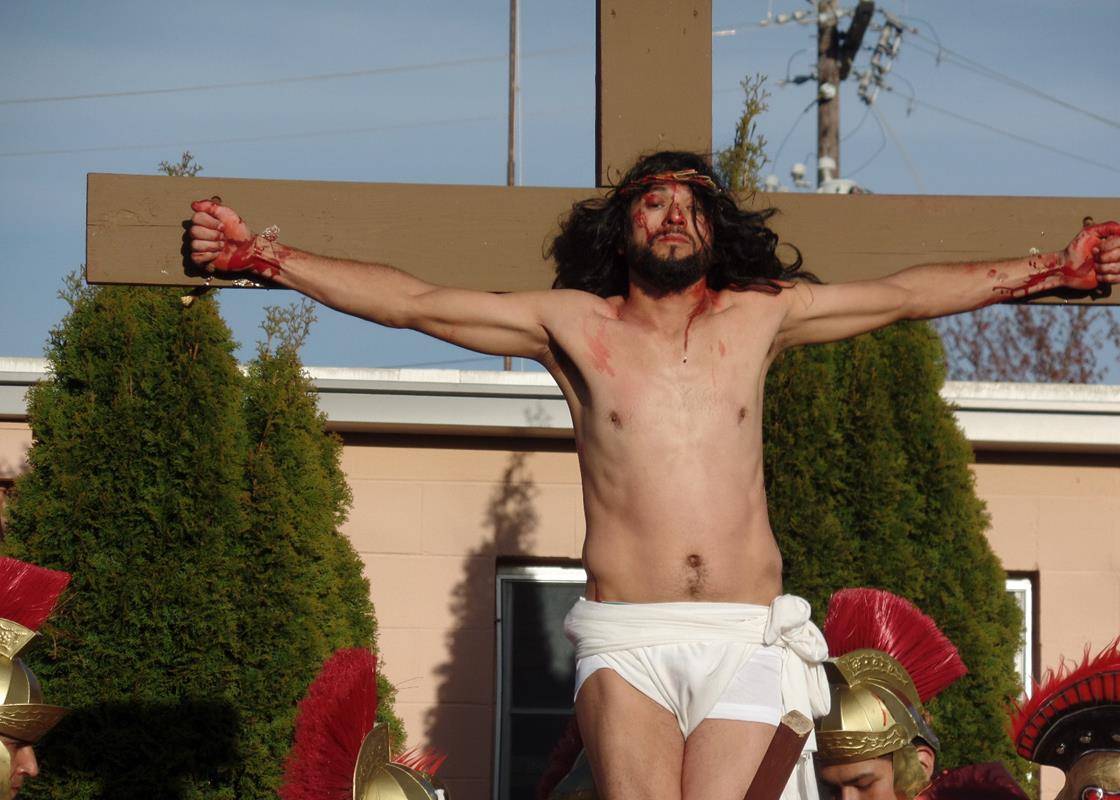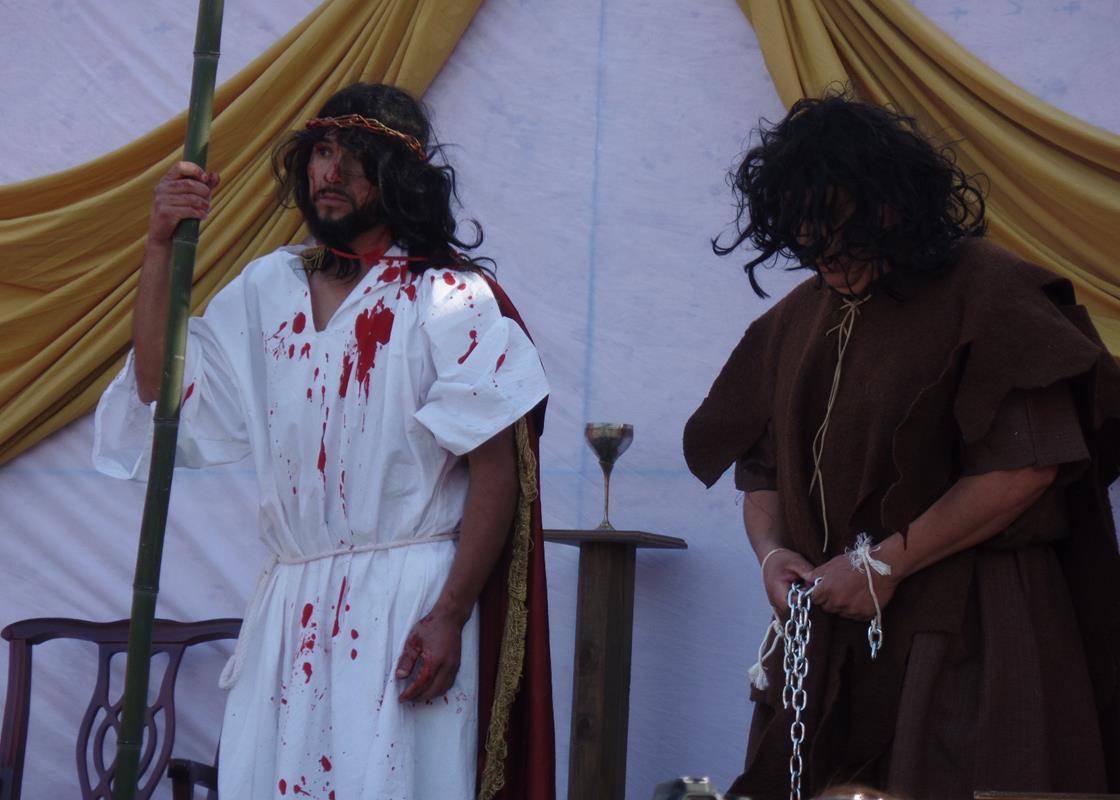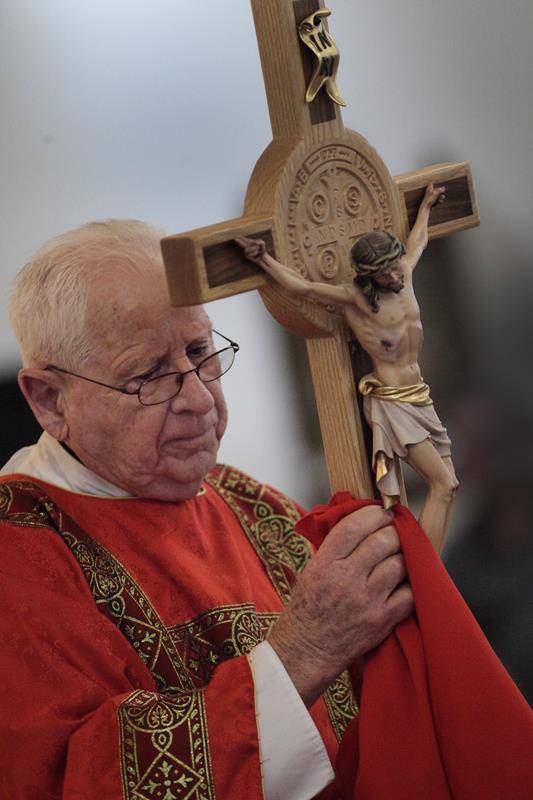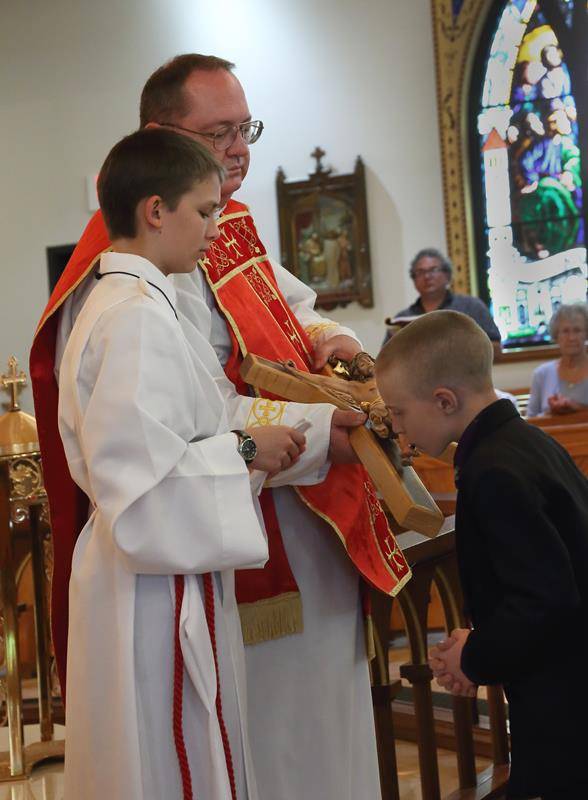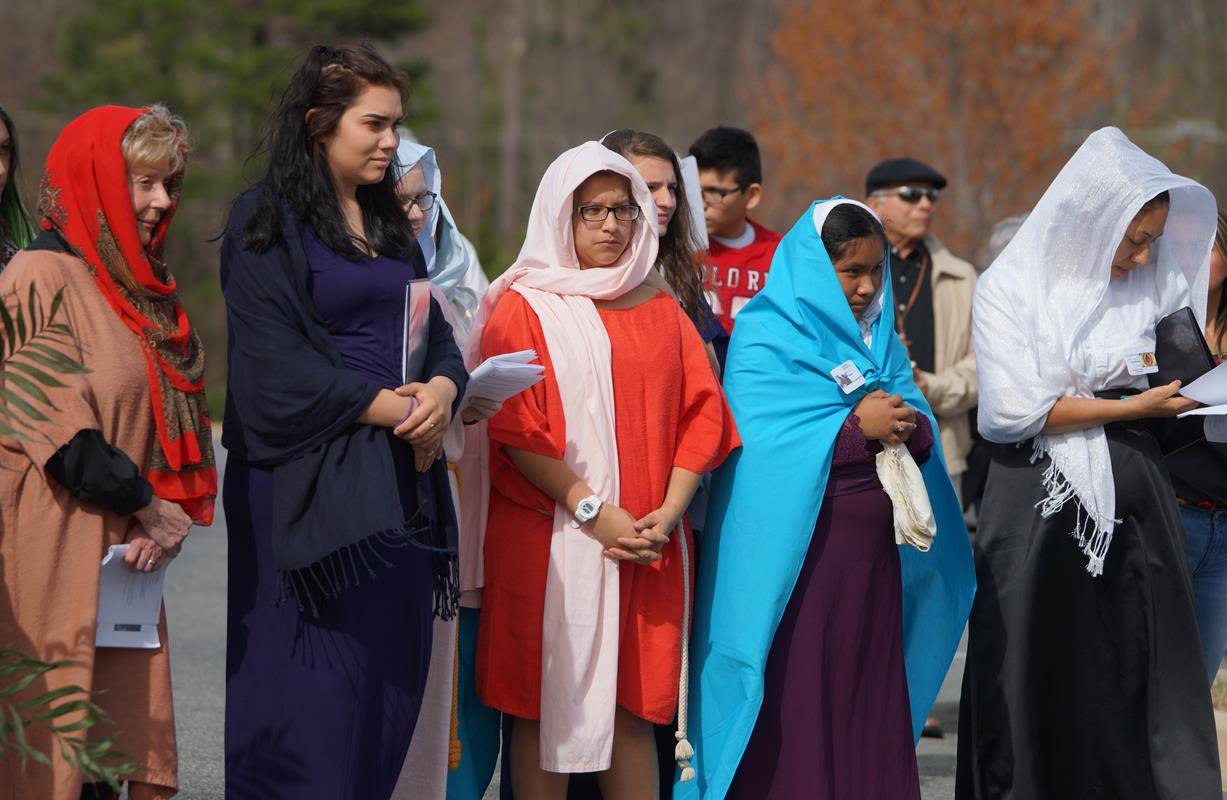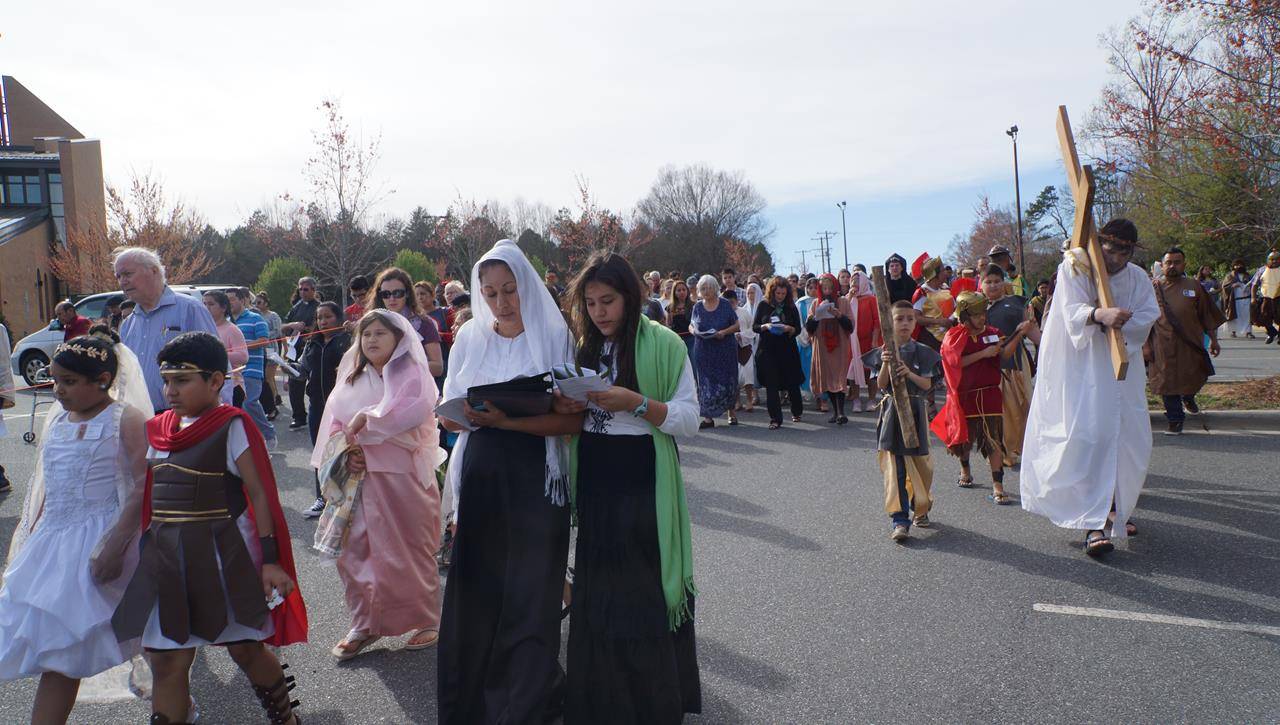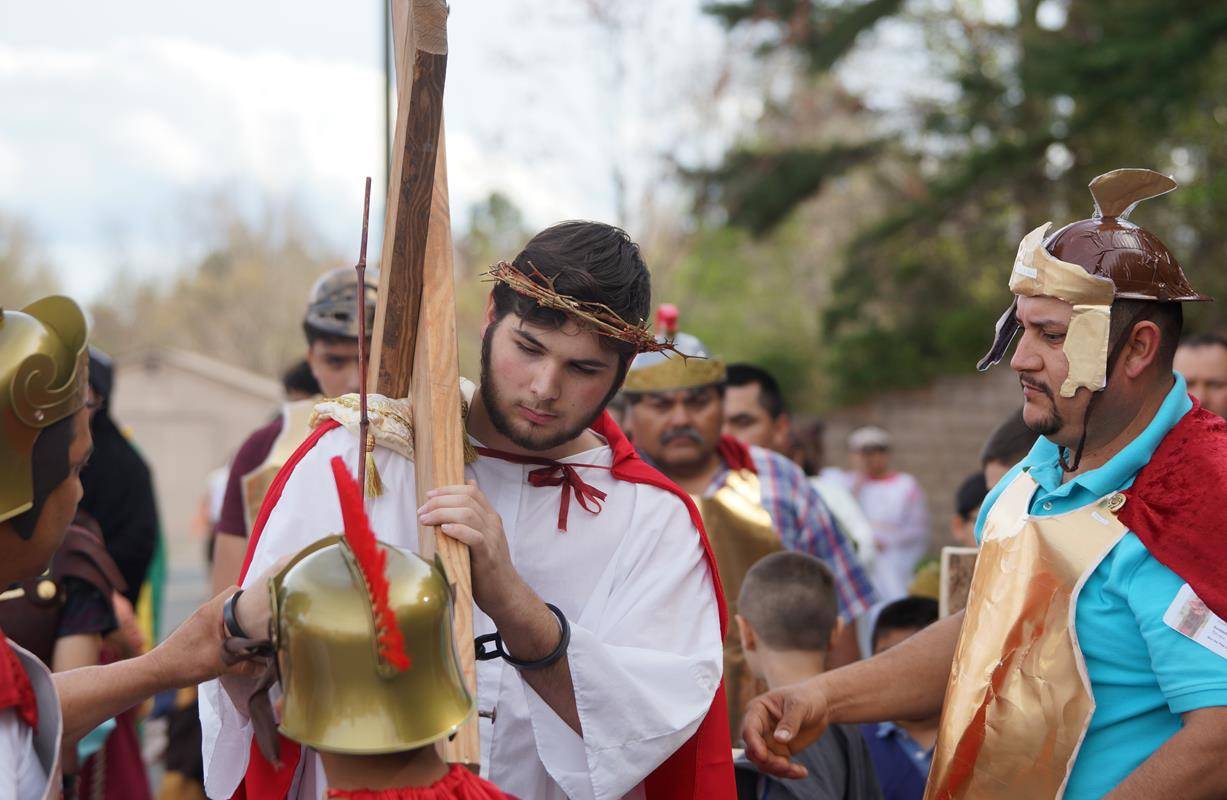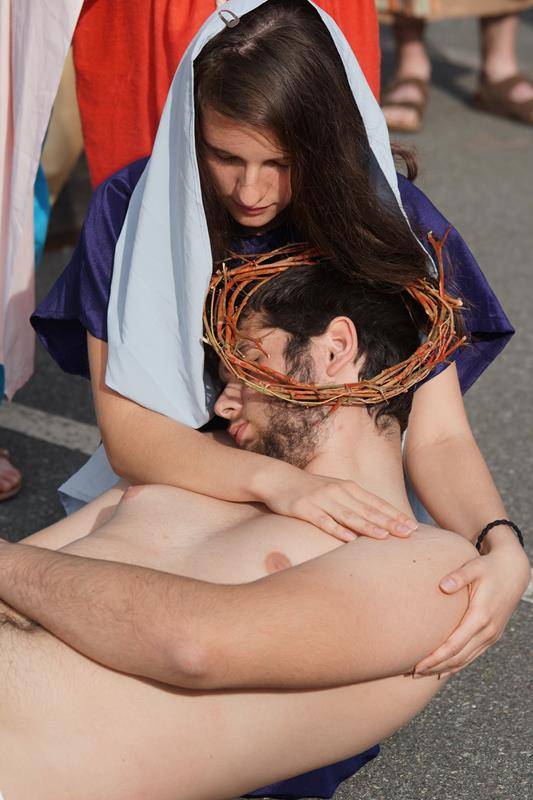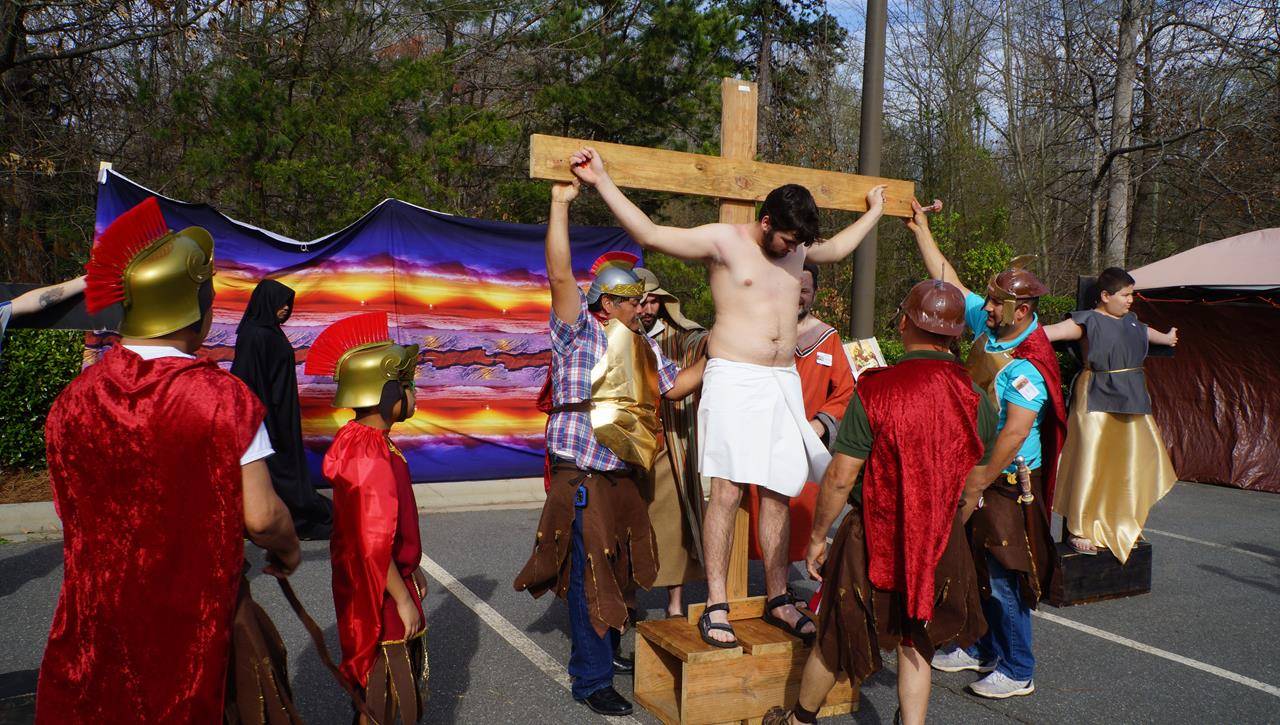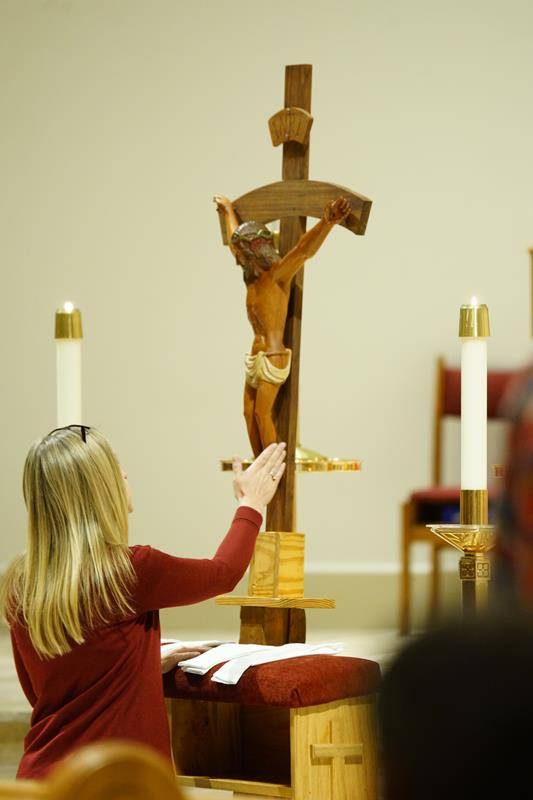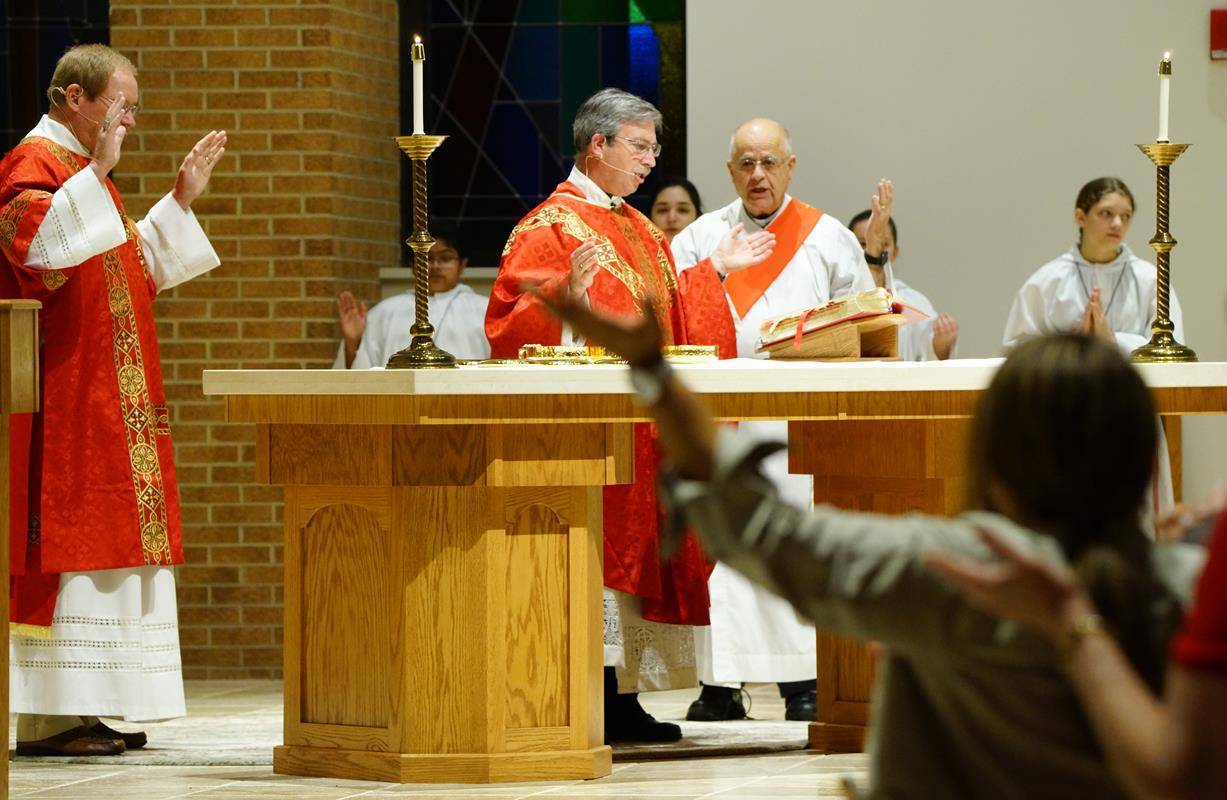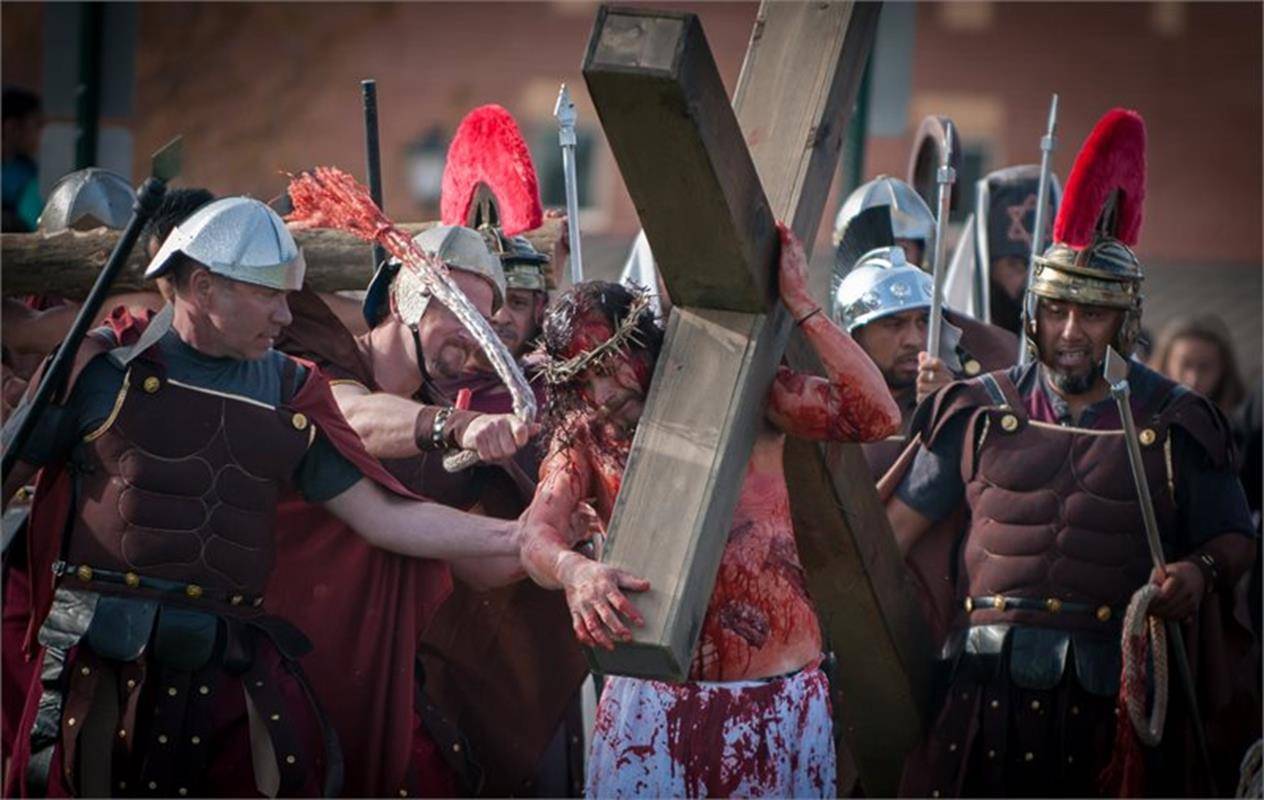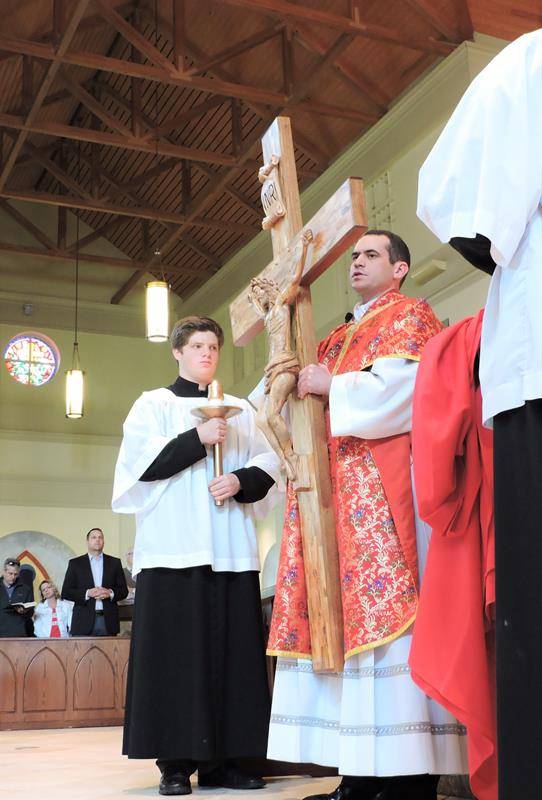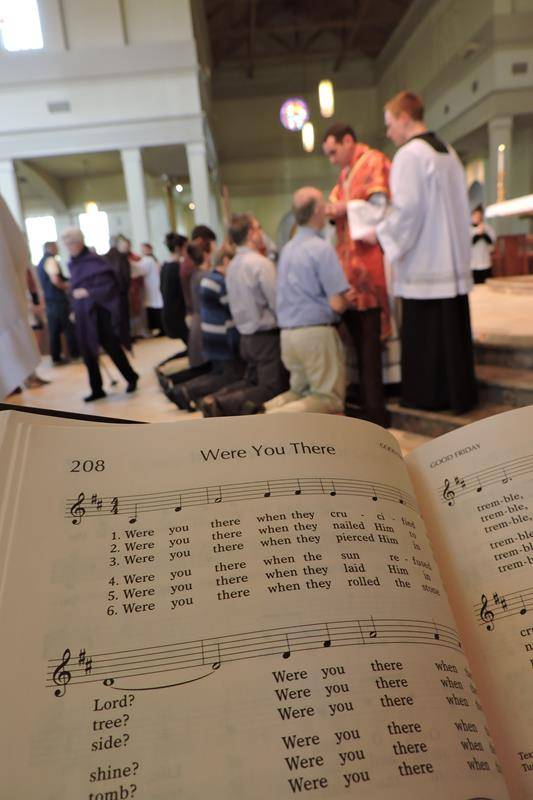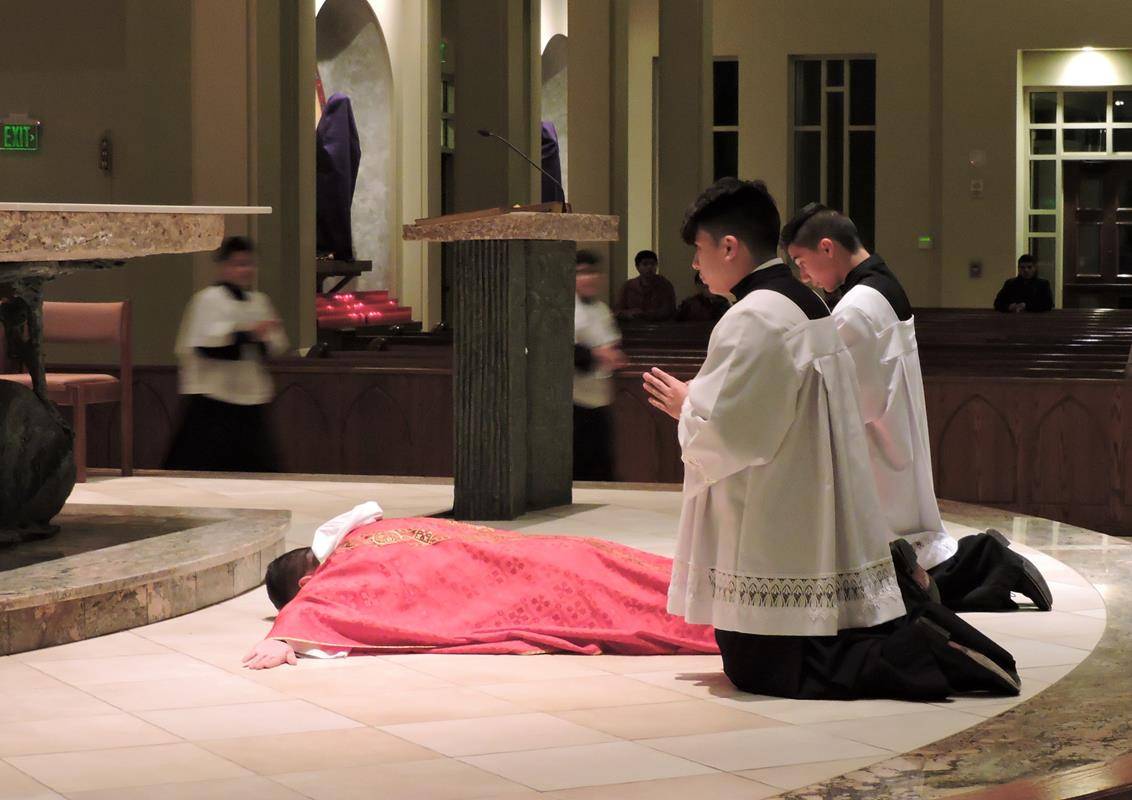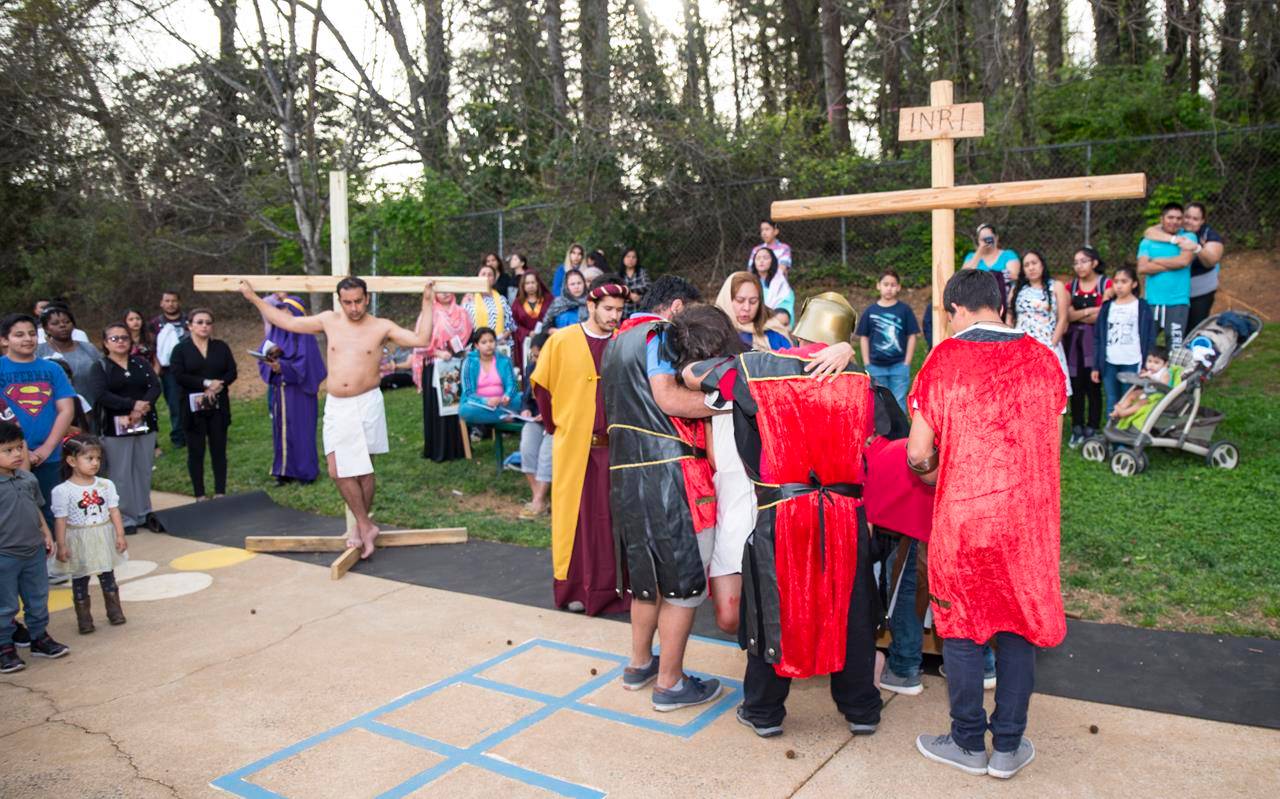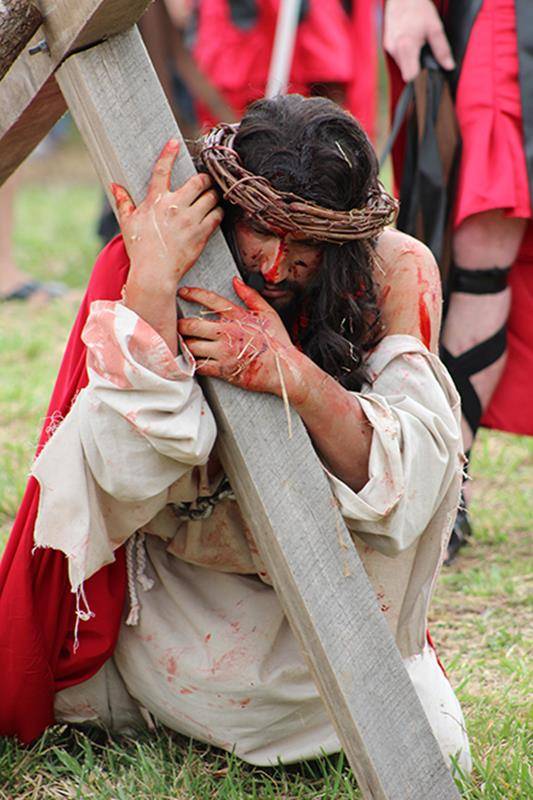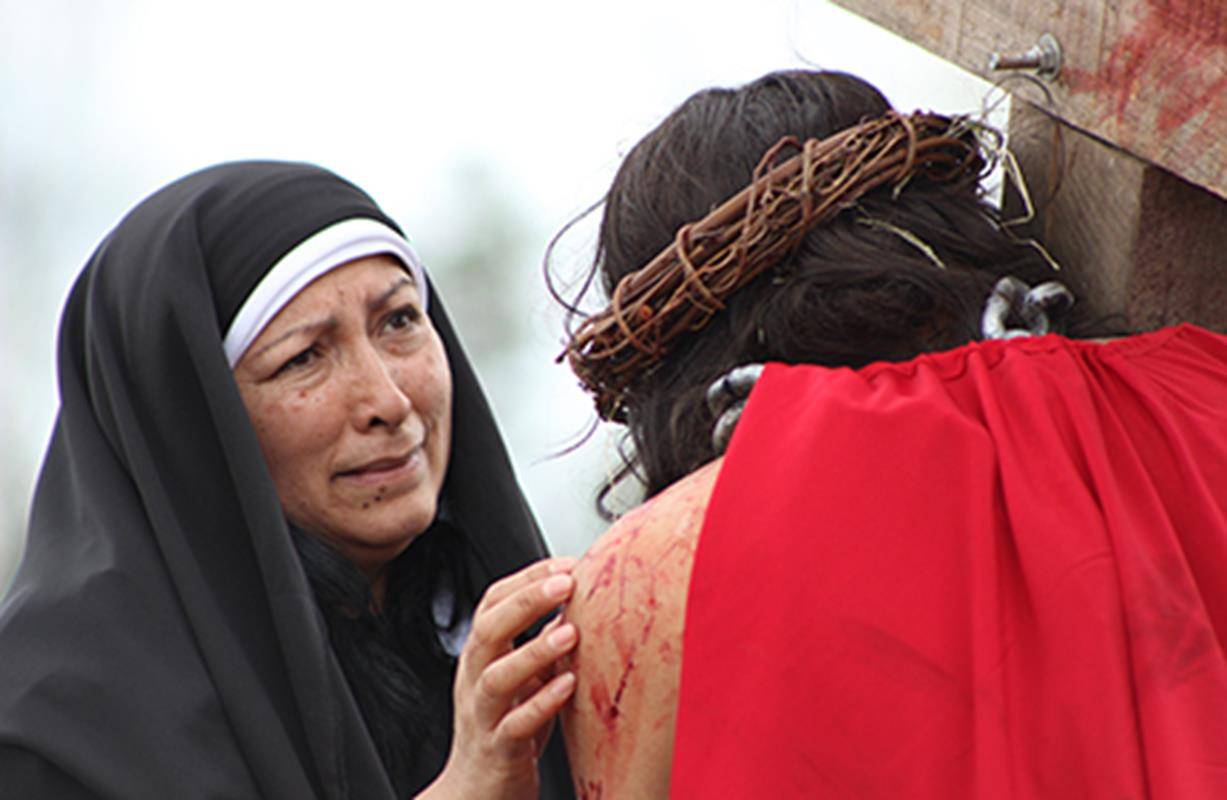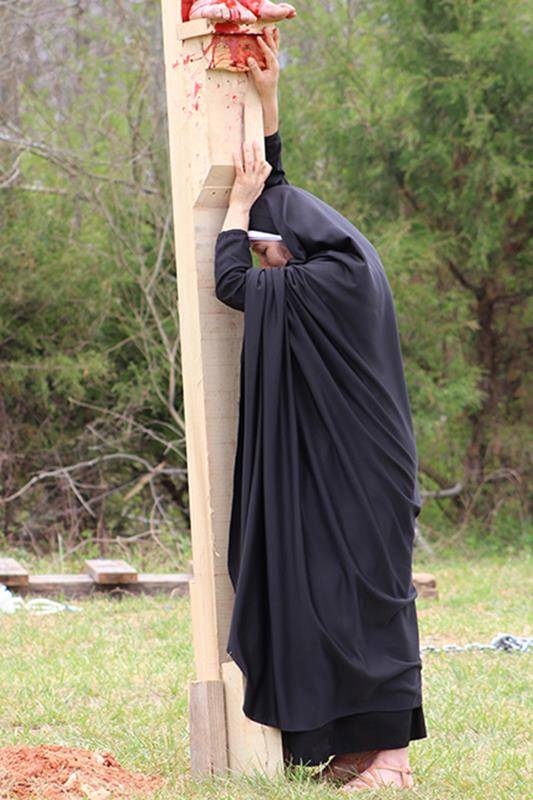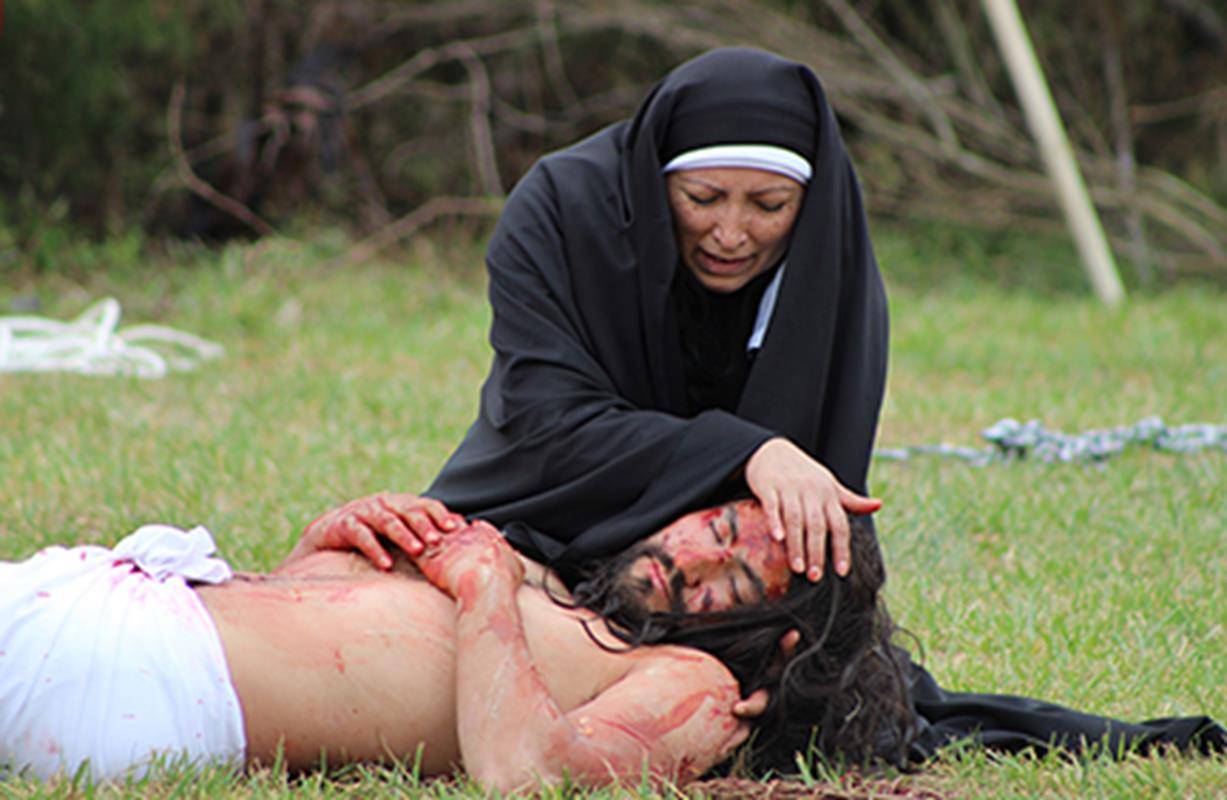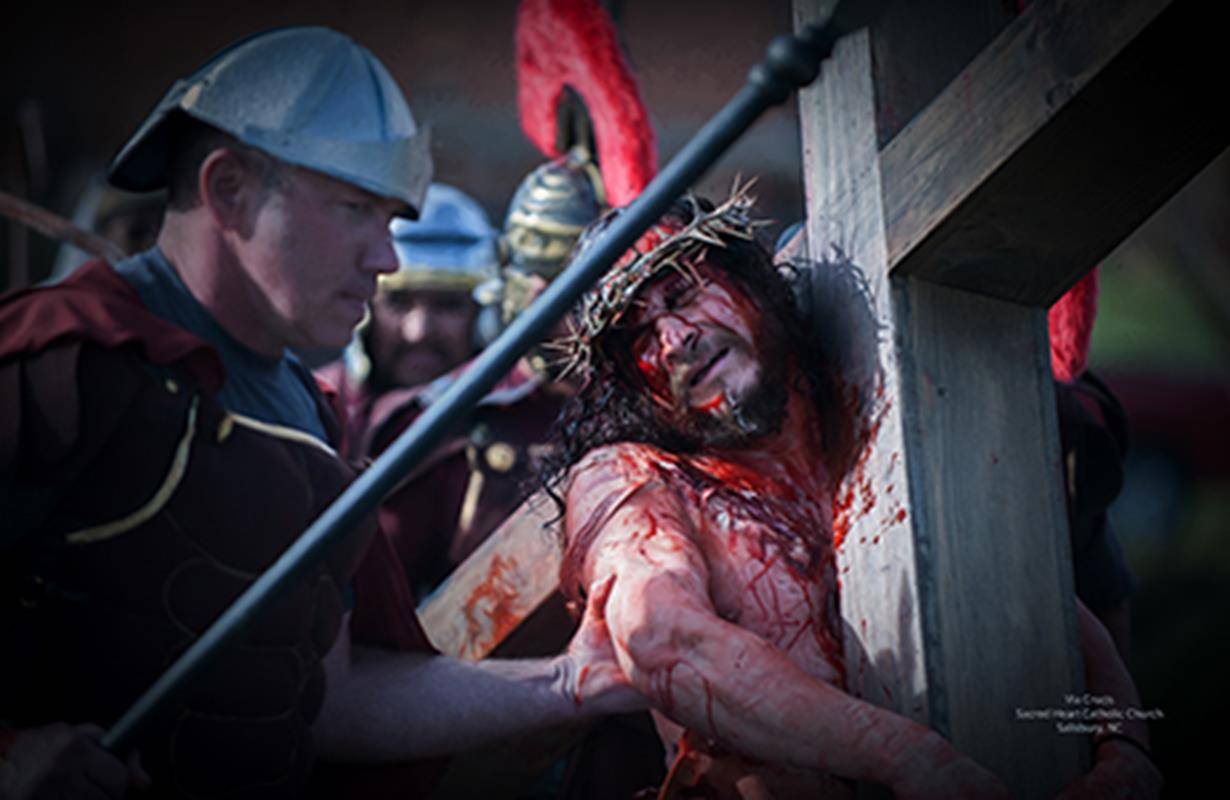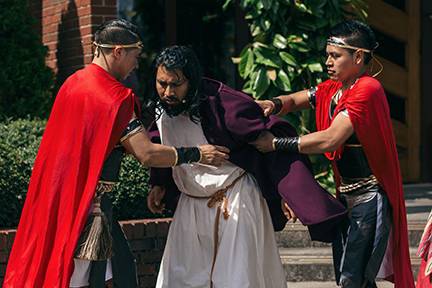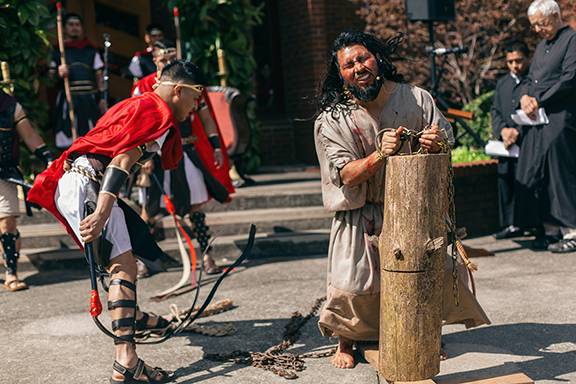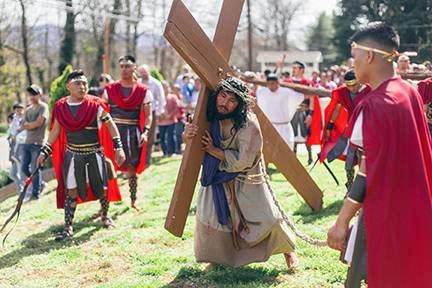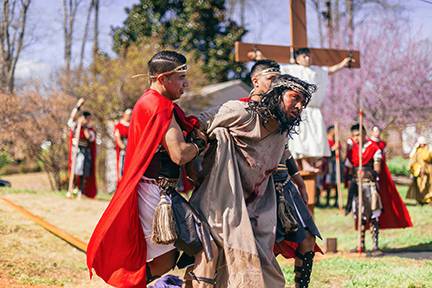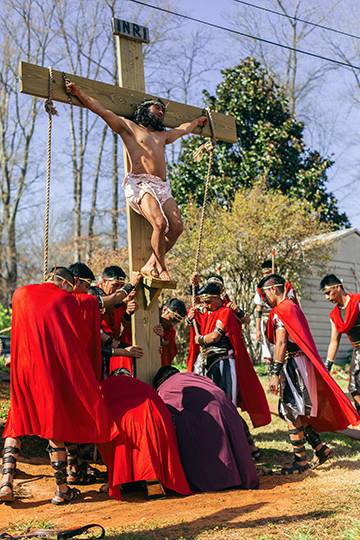Bishop Jugis commemorates Good Friday, venerates cross March 30
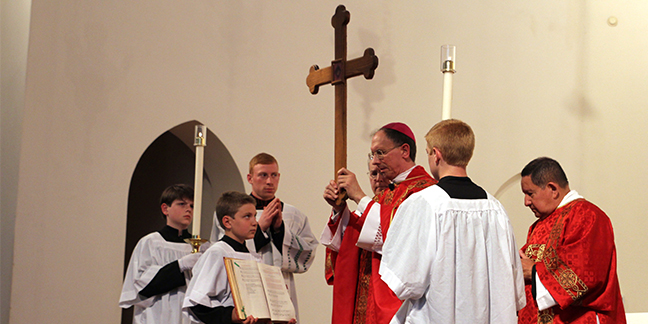 CHARLOTTE — Entering St. Patrick Cathedral in a silent procession to begin the Good Friday liturgy, Bishop Jugis lay prostrate before the sanctuary steps, humbling himself before God and in the presence of the faithful. This annual service held at 3 p.m., the hour Jesus Christ died on the cross, recalled the sacrifice of God’s only begotten Son for the salvation of souls.
CHARLOTTE — Entering St. Patrick Cathedral in a silent procession to begin the Good Friday liturgy, Bishop Jugis lay prostrate before the sanctuary steps, humbling himself before God and in the presence of the faithful. This annual service held at 3 p.m., the hour Jesus Christ died on the cross, recalled the sacrifice of God’s only begotten Son for the salvation of souls.
The March 30 liturgy began with the reading of the Passion narrated by Deacon Brian McNulty, with Deacon Carlos Medina as the voice, Bishop Jugis as Jesus, and the congregation responding as the crowd. They took those gathered on the tortuous journey Christ suffered from the Garden of Gethsemane through His crucifixion on Golgotha.
In his homily, Bishop Jugis asked, ““Why did Jesus choose this path of such extreme public humiliation?” He then recalled that in the first reading if the Solemn Liturgy of Good Friday from Isaiah 52:13-53-12, the prophet Isaiah expressed what the Word of God spoke to him, foretelling what would happen to the Messiah.
“This is a very important passage for understanding and interpreting the Passion of Jesus," Bishop Jugis explained. “In there He says He surrenders Himself to death and by that means He will take away the sins of many and win pardon for their offenses. By His suffering, by His death, He does win salvation and take away the sins of the whole world.”
“Such humiliation, such degradation that He experiences – all for love of us, all for love of you in fulfillment of what He had foretold speaking to the prophet Isaiah. Being dragged publicly, humiliatingly from the high priest to Pontius Pilate, the governor, in a public spectacle. Then being forced to hear the crowd say to Him, ‘Crucify Him! Crucify Him!’ And stand there alone as all of the crowds are shouting at Him. What humiliation."
“Being scourged, being crowned with thorns, carrying the instrument of His torture through the streets of Jerusalem. What a humiliation He was put through that He freely accepted, that He freely willed and wanted. And then, if that was not enough, undergoing the torture. He was tortured to death by His hanging on the cross, as if He were the worst of criminals.”
Bishop Jugis reminded those gathered that as Isaiah has foretold: "He (Jesus) will be counted among the wicked": “He will be counted as a wicked man, as an evil man. He accepts all of this, such public humiliation."
“When you think, though, how else could He show us the full extent of His love for us?” Bishop Jugis asked. “How else could He show that His love was truly genuine? He chooses to go through the most degrading, the most humiliating ordeal to prove how much He loves us. He loves us for our salvation.”
When the bystanders shout at Him, "Save yourself, come down off that cross," the bishop continued, “No, He wouldn’t, because it was because of love that He stayed on that cross."
Jesus' humiliation began at the Last Supper, the bishop said, when He washes the feet of His disciples. The act of washing another’s feet – especially by a Jewish rabbi – was considered degrading, and not even the lowest Jewish slave would be required to wash someone else’s feet.
“Yet here He is degrading Himself, humiliating Himself in the presence of His disciples,” Bishop Jugis noted.
That is why St. Peter says to Jesus, "You will never wash my feet," – in other words, "Jesus, this is completely beneath your dignity." It is a sign of how much Peter esteemed Jesus but also a sign that Peter did not understand what love demands, the bishop said.
“Would you be willing to do anything for the person you love? Would you be willing to be humiliated? Would you be willing to accept degradation for the persons you love?” Bishop Jugis asked. “Jesus says, ‘Yes, whatever it takes, whatever is required. I will do it all. I will accept it all. I will not turn back. I will not say no. I will accept it all – because of love, because I am doing it for you.’”
(In Scripture) Jesus says, "I came that they might have life and have it more abundantly."
“As we know, because of that extreme humiliation and degradation of Himself in front of everyone – the whole Jewish community, that emptying out of self, that gift on the cross, the complete pouring out of His love – comes abundant life for the Church, comes abundant life for every one of us.
“The abundant life of the Resurrection springs forth out of His death. It will continue to flow forth like a river of His self-giving, His self-humiliation until the end of time for each one of us. It is such an abundant life that keeps giving, that never is exhausted. So powerful, so potent,” Bishop Jugis continued.
The reading from Isaiah 53 also says, "It was our infirmities that He bore, our sufferings that He endured."
“He has already taken your infirmities, your sicknesses, your burdens, your sufferings upon Himself,” Bishop Jugis assured the faithful. “Today in honor of the Lord and His Good Friday Passion, it would be a good idea to once again give to Him, give to Christ all of the infirmities that you bear, all of the sufferings that you endure, all of your crosses. Give them to Jesus and unite them to Him and His cross."
“Are there any people who are sick or who are suffering that you know of? Today, in honor of the Lord’s Passion and the passion that they suffer, today would be a good day to visit them," he suggested.
“Let us ask our Lord Jesus, whom we love so much, to consecrate us once again this day in His love,” he concluded.
After the homily, Bishop Jugis, along with Father Christopher Roux, rector of St. Patrick Cathedral, and parochial vicars Father Richard Sutter and Father David McCanless took turns venerating the wooden cross containing a relic of the True Cross. The faithful then also came forward to the base of the sanctuary steps to venerate the cross, usually by giving it a tender kiss.
— SueAnn Howell, senior reporter
More scenes from Good Friday observances
 RCIA candidates are in the home stretch of a journey that will bring them into a closer relationship with God.
RCIA candidates are in the home stretch of a journey that will bring them into a closer relationship with God.
The journey both ends and begins on March 31 at Easter Vigil Masses throughout the Charlotte diocese, when they enter the Catholic Church.
More than a thousand people have been participating in the Diocese of Charlotte’s Rite of Christian Initiation process at their local parishes over the past year. With the help of their sponsors and their parish’s RCIA team, they have been discerning that God is calling them to receive the sacraments of initiation (baptism, confirmation and Holy Eucharist) at the Easter Vigil.
“RCIA is a weekly graced time for parishes that have the process going on in their parish,” says Capuchin Franciscan Father Martin Schratz, pastor of Immaculate Conception Church in Hendersonville and director of the diocese’s RCIA Commission.
“It is a time when the Holy Spirit is moving in the hearts of men, women and children who are looking to embrace the Catholic faith. As they journey together, it is always powerful to see the growth in the lives of these people as they develop a prayer life, involve themselves in ministry, and come to a deeper awareness of God in their life.”
Father Schratz shares that the spiritual journey of RCIA is humbling to observe, especially for him as a priest. “At the same time it becomes a blessing for the entire parish that God is alive and working through its members to bring new life to the parish,” he says.
TWO JOURNEYS
 Samuel Packard is a 21-year-old college junior who is preparing to enter the Church during the Easter Vigil at St. Eugene Church in Asheville.
Samuel Packard is a 21-year-old college junior who is preparing to enter the Church during the Easter Vigil at St. Eugene Church in Asheville.
“My dad was born and raised Catholic and my mom went through Catholic school and later was baptized and confirmed,” Packard says. “I was raised Catholic and received my first Communion, but as I can remember, throughout my childhood our family jumped around between different churches.
“Some Sundays we would go to a Presbyterian church, some Sundays a non-denominational church. As I entered high school, we attended church less and less, until we stopped going at all. I believe I lost my faith sometime in the middle of high school. I never had much religious education, and my grasp of God and His teachings was never very strong. In general, I had never really lived my faith.”
When he entered college, Packard’s faith was pretty much non-existent and the general atmosphere of college “didn’t do much to help bring it back into my life,” he says. “I considered the Catholic Church and Christianity to be an oppressive, outdated relic of a bygone era and that nobody needed it or its teachings in their lives anymore.
“The catalyst that brought faith back into my life started with a general feeling that something was missing. I won’t say that I wasn’t happy, but I never felt fully satisfied. I never considered that God was the thing that was missing from my life.”
When Packard started dating a young Catholic woman in college, he started looking more closely at Catholicism – but not favorably.
“I started becoming more and more curious about her dedication to her faith and questioning how she could ever follow such a backwards and outdated organization as the Catholic Church,” he says. “I spent a lot of time discussing various beliefs with her and also doing a lot of research trying to find confirmation of Catholicism’s wrongness. I respected my girlfriend’s faith, though I thought she was misguided.”
But curiosity turned into an “abstract desire to rediscover God,” Packard says.
He started searching for a religion that fit his lifestyle, but, he notes, “I still felt that something was missing and that I was compromising with God rather than giving myself fully to Him.”
“I continued my spiritual search, trying to find answers to the most challenging of Catholic beliefs through prayer and resources such as Catholic Answers radio show. I realized that most of my beliefs about the Church and Christianity were misguided and that I misunderstood the context for many of the beliefs I found so outdated,” he says.
“I eventually felt that the rich tradition, history and steadfastness to the truth that the Catholic Church possessed was something that I needed, and so I decided to dedicate myself fully to it,” he says. “I had been baptized and taken my first Communion, so I started taking RCIA classes to prepare myself for the sacrament of confirmation and coming into the full life of the Catholic Church.”
He emphasizes, “I wholeheartedly believe that God has led me on this path and brought many people into my life that have shown me the way to Him.”
 Raised a Southern Baptist, Leslie Melikian is a wife and mother who will enter the Church during the Easter Vigil also at St. Eugene Church. The 41-year-old and her husband have been married 18 years and their 14-year-old son, who was baptized as an infant, will also receive his first Holy Communion and be confirmed at the Easter Vigil.
Raised a Southern Baptist, Leslie Melikian is a wife and mother who will enter the Church during the Easter Vigil also at St. Eugene Church. The 41-year-old and her husband have been married 18 years and their 14-year-old son, who was baptized as an infant, will also receive his first Holy Communion and be confirmed at the Easter Vigil.
“Though I was never baptized, my parents (who are both still Baptist) instilled in me the love of God and love for Him, especially the appreciation for His creation,” Melikian says. “I’ve never wavered in my love for God, but always felt that the relationship that I had with Him personally was enough.”
Melikian says her husband grew up Catholic and attended Catholic schools all the way through high school. “But after we met and while we have been married, he has basically only gone to church on holidays and family events. I’ve usually attended with him and have always felt very comfortable in the Catholic Church.”
“I’ve never felt any pressure from my husband or his Catholic family to convert,” she says. “There was a time years ago that I said that I would never convert, that I was perfectly comfortable with the relationship I had with God.
“However, as we know, never say never.”
Last Easter her husband decided that rather than giving up something for Lent, he would start going to Mass regularly. “So after about the first month, I started going as well,” she says.
“When everyone would get up to go to receive the Eucharist, I would use this time to pray and listen. Not prayers of what I wanted to happen, but prayers asking  God for His guidance in what His will was for me to do. It was in those quiet moments that I felt such a strong pull to be a part of the Church, and things during Mass started touching me like they hadn’t before.”
God for His guidance in what His will was for me to do. It was in those quiet moments that I felt such a strong pull to be a part of the Church, and things during Mass started touching me like they hadn’t before.”
When it came time for RCIA, she says, “it was no-brainer for me, and the journey has been wonderful. So many things, little things, have changed in my life since I put my trust in that this is where God is calling me to be.”
Melikian says she is attracted by the love and mercy of God expressed through the Church, as well as by the liturgy of the Mass itself.
“The structure of the Mass has also been a wonderful thing for me,” she says. “Each week I always leave feeling a little more ‘full’ and so thankful to be a part of it.”
“As I said before, I had always felt that my personal relationship with God was enough. But going to Mass on Sundays and with meeting with the RCIA group, it has without a doubt proved to me that relationship alone is not enough.”
“It is when we worship together that the presence of God is more strongly with us,” she says. “And that community brought together also helps spread the love that was taught to us.”
RITE OF ELECTION
 Before people can receive the sacraments of initiation and join the Church, they must be officially called to the sacraments by the bishop or someone designated by him, during what’s called the Rite of Election and Call to Continuing Conversion.
Before people can receive the sacraments of initiation and join the Church, they must be officially called to the sacraments by the bishop or someone designated by him, during what’s called the Rite of Election and Call to Continuing Conversion.
The Rite of Election marks the end of formal study of the teachings and practices of the Church, and the catechumens and candidates are now called “the elect.” Three Rites of Election were held during liturgies over the past few weeks around the diocese: Arden, Charlotte and Greensboro.
On Feb. 24, catechumens and candidates and their sponsors, friends, family and clergy gathered from 17 nearby parishes for the Rite of Election at St. Paul the Apostle Church in Greensboro.
“We call these 40 days of Lent that we are now in, a period of purification and enlightenment,” Bishop Peter Jugis said in his homily. “Those two words are significant in what you are undergoing.
“Purification is a time to purify your mind and hearts through prayer and repentance.” And enlightenment, he said, is when “we turn away from sin and towards something else.”
Patricio Morillo, RCIA director for over a decade at Holy Family Church in Clemmons, says, “A lot of people now realize how close we are to the day when they are going to receive the sacraments, and they are very excited. This really makes it real for them. Before it was instruction and so forth, but this is a special day where they see that they are very close and they start really looking inward.”
Holy Family Church will welcome 14 catechumens and candidates this year, he says.
“I think the variety of the people that come is always amazing, the way the Holy Spirit brings them in is always amazing, but when they get right down to it, it’s always for themselves,” says Neil Rochette, St. Pius X Church RCIA team member and sponsor. “And they have to decide that it is for themselves.”
 During the Rite of Election in Greensboro on Feb. 24, families gathered in pews with loved ones, team members and sponsors. Some families had many on this journey together. Francis Rodriguez, a member of Sacred Heart Church in Salisbury, will be witnessing and celebrating his entire family joining the Catholic Church this Easter.
During the Rite of Election in Greensboro on Feb. 24, families gathered in pews with loved ones, team members and sponsors. Some families had many on this journey together. Francis Rodriguez, a member of Sacred Heart Church in Salisbury, will be witnessing and celebrating his entire family joining the Catholic Church this Easter.
A parishioner and longtime catechist Dr. Karen Dyer, has been teaching the sacramental prep class at St. Paul the Apostle Church for almost two decades. “This is my 18th year of teaching,” she says. “It’s very inspiring, and I learn just like they do.”
Christ the King Church in High Point not only celebrated its 75th anniversary this past year, but RCIA team members are excited to celebrate the largest group of catechumens and candidates since the parish was established in 1940.
“We had 19 all together,” says Judy Sowell, interpreter for the RCIA team, the largest group in Christ the King’s history.
When asked how this day and this journey has made her feel, Holy Cross catechumen Michelle Castillo simply answers, “I feel closer to God.”
During his homily Bishop Jugis enjoined those gathered to “let God be God. We are called to a dependence upon God through His grace and His love,” he said. “We’re dependent upon Jesus for our life and our sustenance. We are dependent creatures. We need God for everything.”
— SueAnn Howell and Georgianna Penn, Catholic News Herald
Pictured: People who are on a path to enter the Catholic Church at the Easter Vigil March 31 were presented to Bishop Peter Jugis during three recent liturgies in Arden, Charlotte and Greensboro. At one moment during the Rite of Election and Call to Continuing Conversion, the “Book of the Elect” for every parish is held aloft. (Photos by Georgianna Penn, John Cosmas, John Kenny and Paul Wojcik | Catholic News Herald)


